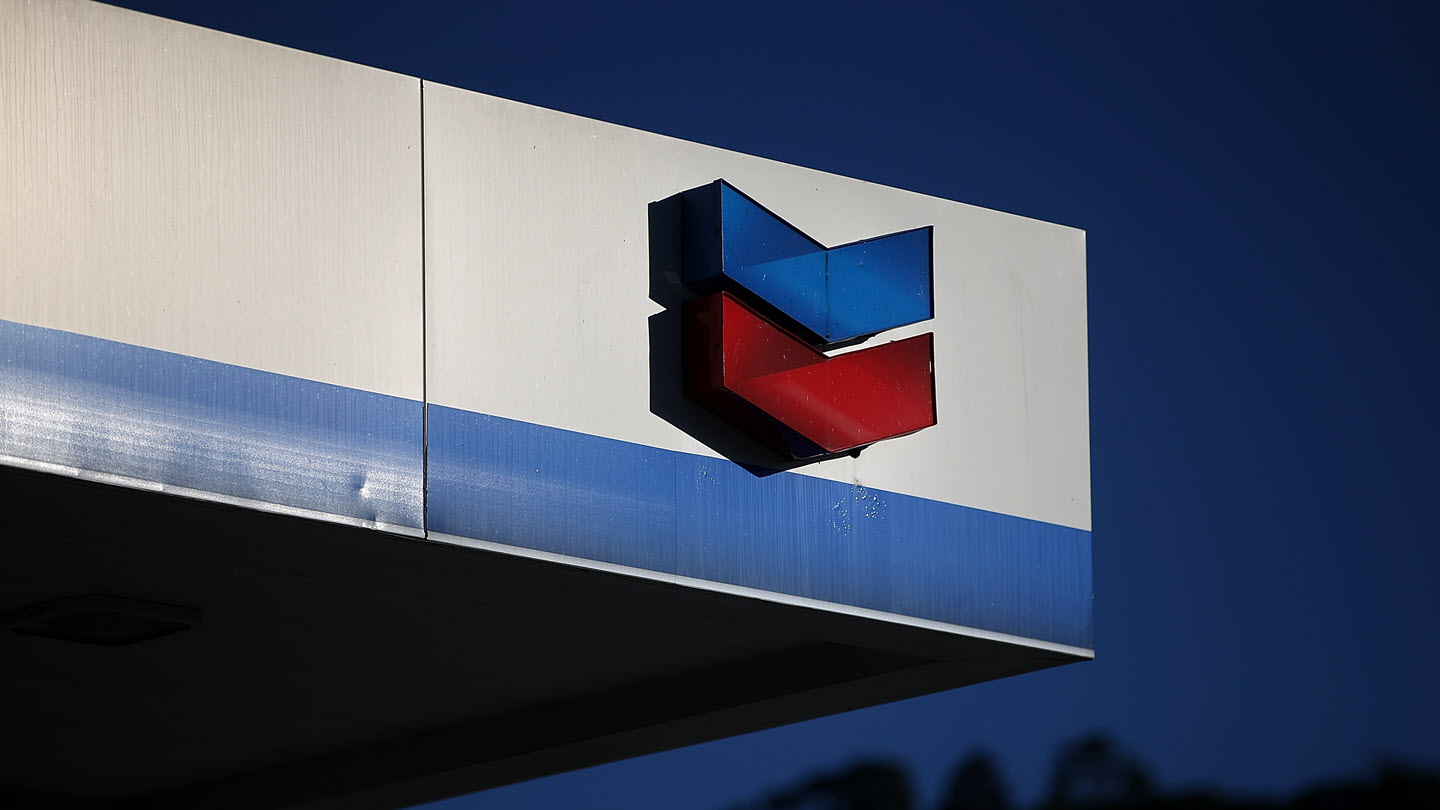
Climate activists won a major victory in May 2020 when a majority of Chevron shareholders voted to require the company to review how its lobbying, both directly and through trade groups, aligns with the Paris Agreement’s goal of limiting global warming to well below 2 degrees Celsius.
Of the seven proposals outlined on the proxy statement, it was the only one where a majority of shareholders bucked the Chevron board of directors’ recommendation. The proposal was filed by BNP Paribas Asset Management, a member of the investor initiative Climate Action 100+, and was the first ever climate-related proposal put forth by the company’s shareholders that was approved.
Earlier this week, Chevron quietly released its climate lobbying report. In it, the company lists its affiliations with many of the largest fossil fuel industry lobbying groups in the world and then tries to spin each one as an environmental champion that works in good faith to advance sound climate policies. The report says that the company does not always agree with all its trade groups’ positions, but it does not reckon with any of those disagreements, let alone propose any actions.
The shareholder resolution called on the company to assess how its trade group activities align with its stated support for the Paris Agreement and explain steps it takes when there are misalignments, but there is no such self-reflection anywhere in the 12-page document. Given that oil companies like BP and Total have recently withdrawn from trade groups because they determined their climate policies were not strong enough, Chevron’s report is viewed by activists as totally insufficient.
“Chevron is thumbing its nose at its own shareholders, who voted for corporate climate lobbying disclosure,” said Kathy Mulvey, accountability campaign director in the Climate and Energy Program at the Union of Concerned Scientists. “Chevron’s new report is worse than a box-ticking exercise, it’s greenwashing.”
Take for example the American Petroleum Institute (API), one of the largest oil and gas lobbying groups in the world. French oil company Total pulled out of the group last month after assessing its positions and finding that it disagreed with it on regulating methane emissions (API has argued that direct regulation of methane is unlawful), and on subsidies for electric vehicles (API is a member of a front group that works to oppose such subsidies). But Chevron’s report simply cherry-picks from API’s positions and highlights things like its new Climate Committee and something called The Environmental Partnership it launched that brings oil and gas companies together at conferences to collaborate on environmental initiatives.
API also funds many politicians who oppose climate-friendly legislation in the U.S. In 2020, it gave $1.3 million to a dark money group that was formed to run ads in support of Rep. Henry Cuellar, aka “Big Oil’s favorite Democrat,” as he faced a primary challenger who backed the Green New Deal. Its PAC consistently donates more than twice as much per cycle to Republican candidates than Democratic candidates, according to figures maintained by OpenSecrets. The market-based approaches to climate change favored by some Republicans (i.e., the ones willing to address the issue at all), like a carbon tax, are not sufficient to avoid some of the worst effects of global warming, according to climate scientists with the Intergovernmental Panel on Climate Change (IPCC).
Chevron also discloses its membership in oil refinery lobbying group American Fuel & Petrochemical Manufacturers (AFPM). A spokesperson for AFPM told Axios in 2019 that the organization does not have an official position on the Paris Agreement, but Chevron’s report does not mention that. Instead, the report says, “AFPM’s climate principles call for policies that are balanced, measured, transparent, harmonized, and economy-wide.”
In 2019, AFPM worked to organize Republican governors to sign on to a public comment letter supporting President Trump’s rollback of the fuel efficiency standards that were put in place by President Obama ten years earlier. According to a report from DeSmog, AFPM got help for the effort from the Republican Governors Public Policy Committee, to whose parent group, the Republican Governors Association, it donated more than $200,000 to in the 2018 election cycle.
Chevron also disclosed membership in the California Independent Petroleum Association (CIPA). The group’s CEO called Trump’s opening up of more federal lands for oil and gas development in 2017 “a positive first step.” More recently it lobbied against California Gov. Gavin Newsom’s proposal to add dozens of staff members, paid for by the oil industry, to the agency that oversees oil and gas drilling in the state. But according to Chevron’s report, CIPA is just a group that has “advocated for California to put solutions on the table to meet the state’s climate and energy goals.”
The Consumer Energy Alliance is also listed in Chevron’s report, and described as a group that “is focused on advancing policies that consider consumer needs and support technology and innovation.” The group runs campaigns against incentives for solar power like tax credits and net metering, such as in 2014 when it faked grassroot support for an anti-net metering petition in Wisconsin.
According to Mulvey, Chevron’s lobbying has delayed progress on climate change, and its rosy report on its many trade groups should not be accepted.
“Shareholders should roundly reject this report and send Chevron back to the drawing board,” said Mulvey. “Corporate reporting on climate policy advocacy and lobbying is fast becoming the norm among European oil and gas companies and Chevron should not be allowed to make a mockery of such reports.”
Read more Sludge at Brick House:
